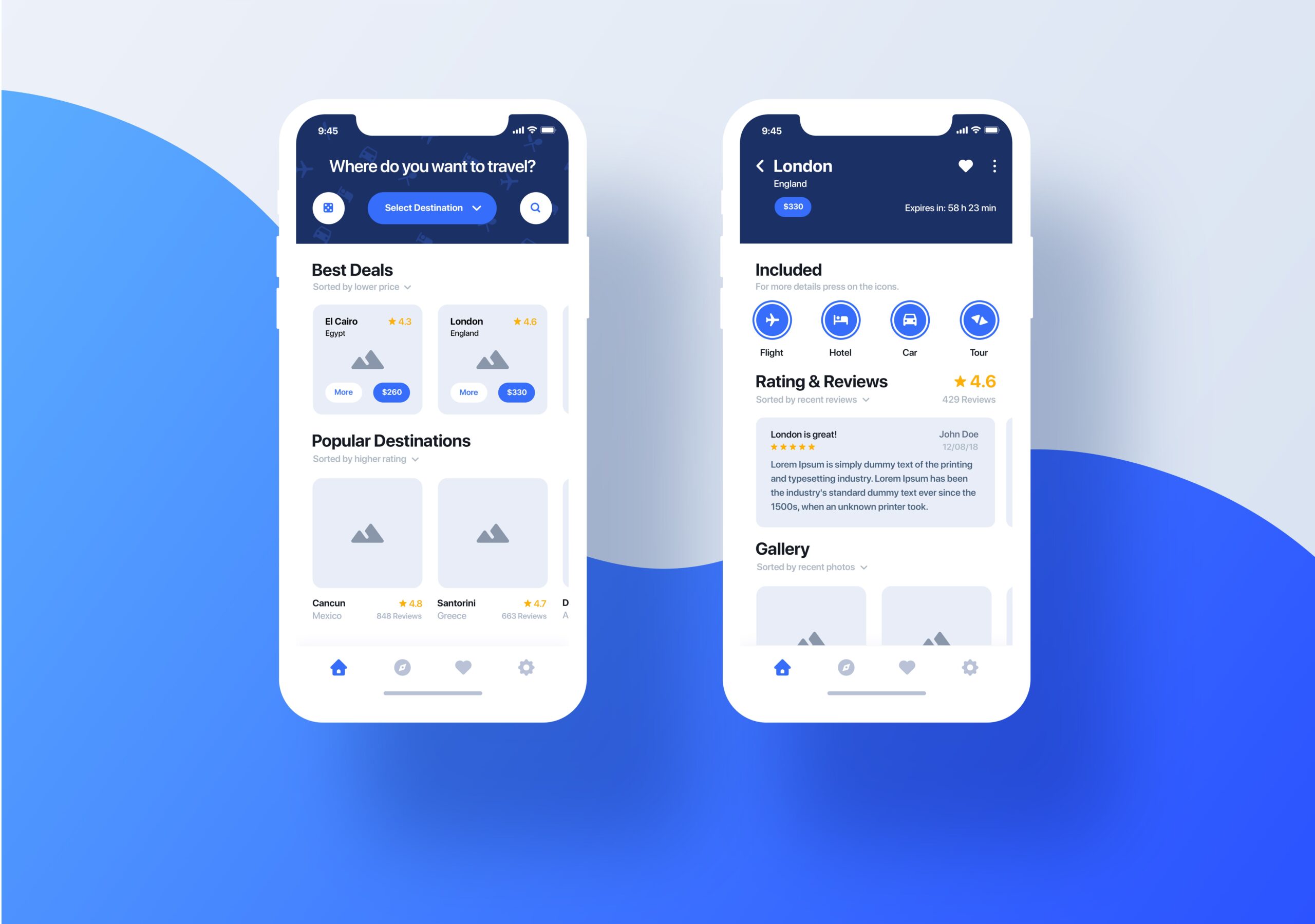In the dynamic world of digital marketing, B2B (business-to-business) marketing stands out as a specialized discipline focused on the needs, interests, and challenges of other businesses rather than individual consumers. As companies increasingly rely on digital channels for their marketing efforts, mastering B2B digital marketing has become essential for achieving business growth and maintaining a competitive edge. B2B digital marketing involves using online strategies and tools to attract, engage, and convert other businesses into customers. Unlike B2C (business-to-consumer) marketing, which targets individual consumers, B2B marketing emphasizes building relationships with key decision-makers within companies. This requires a unique approach that combines data-driven insights, strategic planning, and the effective use of digital technologies. In this comprehensive guide, we will explore the key strategies, tools, and best practices that can help you master B2B digital marketing. From content marketing and SEO to marketing automation and social media, we will cover everything you need to know to create successful B2B campaigns that drive results. We will also delve into real-world case studies, examine common challenges, and look ahead at future trends shaping the B2B digital marketing landscape.
Understanding B2B Digital Marketing
B2B digital marketing is the practice of using online channels and tools to market products or services to other businesses. This type of marketing focuses on building relationships and providing value to business clients, who typically make purchasing decisions based on logic, financial incentives, and the potential for long-term partnerships.
Key Differences Between B2C and B2B Digital Marketing
- Target Audience: B2B marketing targets business entities, whereas B2C marketing focuses on individual consumers.
- Decision-Making Process: B2B purchases involve multiple stakeholders and a longer decision-making process compared to B2C transactions.
- Content and Messaging: B2B marketing content is often more detailed, technical, and data-driven, addressing specific business needs and pain points.
- Sales Cycle: The B2B sales cycle is generally longer and more complex, requiring consistent nurturing and follow-ups.
https://youtu.be/SKOozKs_1QU?si=FjTOSmslp9IhXVwj
Core Components and Channels of B2B Digital Marketing
- Content Marketing: Creating valuable and informative content, such as whitepapers, case studies, and blog posts, to attract and educate potential business clients. Learn more on how to create a Digital Marketing Strategy Framework.
- Email Marketing: Using targeted email campaigns to nurture leads, build relationships, and drive conversions.
- SEO and SEM: Optimizing websites and using search engine marketing to increase visibility and attract high-quality traffic from search engines.
- Social Media Marketing: Leveraging platforms like LinkedIn, Twitter, and Facebook to connect with potential clients, share content, and build a professional network. Learn more about how to be a profitable social media expert.
- Marketing Automation: Implementing automation tools to streamline marketing processes, personalize communication, and improve efficiency.
Key Strategies for B2B Digital Marketing Success
To succeed in B2B digital marketing, it’s crucial to implement effective strategies that address the unique needs of business clients. Here are some key strategies to consider:
- Content Marketing: Content marketing plays a pivotal role in B2B digital marketing by providing valuable information that helps businesses make informed decisions. Focus on creating high-quality content that addresses the specific pain points and needs of your target audience.
- Email Marketing: Email marketing remains one of the most effective channels for B2B communication. Personalize your emails, segment your audience, and use automation to send timely and relevant messages that nurture leads and drive conversions.
- SEO and SEM: Optimize your website for search engines to ensure that your business is easily discoverable by potential clients. Invest in both organic SEO and paid search (SEM) to maximize your online visibility and attract high-quality traffic. Learn more on Integrating SEO Services with Paid Ads for Optimal Results.
- Social Media Marketing: Leverage social media platforms to build relationships with potential clients and industry influencers. Share informative content, engage in conversations, and participate in relevant groups and discussions to establish your brand as a thought leader.
- Marketing Automation: Marketing automation tools can help you streamline your marketing processes, track leads, and personalize communication at scale. Use these tools to nurture leads through the sales funnel and improve overall marketing efficiency.
Checkout our Services page for more information on these strategies!
Essential Tools for B2B Digital Marketing
Having the right tools is essential for executing a successful B2B digital marketing strategy. Here are some of the key tools you should consider:
- CRM Systems: Customer Relationship Management (CRM) systems help you manage interactions with clients and prospects. They provide valuable insights into customer behavior, track communication history, and help you nurture relationships effectively.
- Marketing Automation Platforms: These platforms automate repetitive marketing tasks, such as email campaigns, social media posting, and lead nurturing. They help you save time, increase efficiency, and deliver personalized experiences to your audience.
- Analytics Tools: Analytics tools, such as Google Analytics, provide detailed insights into website performance, user behavior, and campaign effectiveness. Use these tools to measure your marketing efforts, identify areas for improvement, and make data-driven decisions.
- Content Management Systems: Content Management Systems (CMS), such as WordPress, allow you to create, manage, and publish content easily. They provide the flexibility to optimize your content for search engines and deliver a seamless user experience.
- Social Media Management Tools: These tools help you schedule, monitor, and analyze your social media activities. They provide insights into engagement metrics, audience demographics, and content performance, enabling you to refine your social media strategy.
Best Practices for B2B Digital Marketing
Implementing best practices can significantly enhance the effectiveness of your B2B digital marketing efforts. Here are some key best practices to follow:
- Creating a Buyer Persona: Develop detailed buyer personas to understand the needs, challenges, and preferences of your target audience. This will help you tailor your marketing messages and strategies to resonate with your ideal clients.
- Personalizing Communication: Personalization is key to building strong relationships with business clients. Use data and insights to personalize your communication, addressing specific pain points and offering tailored solutions.
- Leveraging Data Analytics: Use data analytics to gain insights into customer behavior, campaign performance, and market trends. This will help you make informed decisions, optimize your marketing efforts, and achieve better results.
- Integrating Various Marketing Channels: Ensure that your marketing channels work together seamlessly to provide a consistent and cohesive experience for your audience. Integrate your content, email, social media, and automation efforts to maximize impact and reach.
Challenges in B2B Digital Marketing
Despite the immense potential of B2B digital marketing, businesses often face significant challenges. One of the most common obstacles is navigating the long sales cycles and complex decision-making processes typical of B2B transactions. Unlike B2C sales, where decisions can be made quickly and often impulsively, B2B sales require approval from multiple stakeholders, each with their own criteria and concerns. This complexity necessitates a deep understanding of the client’s business needs and a strategic approach to nurturing leads over extended periods.
Targeting the right audience is another major challenge in B2B digital marketing. With a more niche and specific market compared to B2C, finding and engaging potential clients requires precise targeting and personalized communication. Businesses must invest in thorough market research and data analysis to identify the key decision-makers and influencers within their target companies. Additionally, crafting tailored messages that address the unique pain points and objectives of these individuals is crucial for successful engagement and conversion.
Measuring the return on investment (ROI) of B2B digital marketing efforts can be particularly challenging due to the multifaceted nature of the sales process and the long sales cycles involved. Unlike direct sales metrics in B2C, B2B marketing success is often measured by lead quality, engagement levels, and the overall influence on the sales pipeline. To accurately assess the effectiveness of their marketing strategies, businesses need to implement robust analytics tools and processes that can track and attribute the various touchpoints and interactions throughout the buyer’s journey.
Keeping up with the rapidly evolving digital marketing landscape poses an ongoing challenge for B2B marketers. New technologies, platforms, and trends emerge frequently, requiring businesses to continuously adapt their strategies to stay competitive. This includes staying informed about the latest advancements in marketing automation, artificial intelligence, and data privacy regulations. To overcome this challenge, B2B marketers must prioritize continuous learning and agility, regularly updating their knowledge and skills to leverage new opportunities and maintain a cutting-edge approach.
Common Obstacles
- Long sales cycles and complex decision-making processes
- Difficulty in targeting the right audience
- Measuring the ROI of marketing efforts
- Keeping up with changing digital marketing trends and technologies
Strategies to Overcome Challenges
- Use data and analytics to understand your audience and tailor your marketing efforts accordingly
- Implement marketing automation to streamline processes and improve efficiency
- Focus on building relationships and providing value to your audience
- Stay updated with the latest trends and continuously optimize your strategies
Future Trends in B2B Digital Marketing
The future of B2B digital marketing is being shaped by several emerging trends and technologies that promise to transform how businesses connect with their clients. One of the most significant trends is the increasing use of artificial intelligence (AI) and machine learning in marketing. These technologies enable businesses to analyze vast amounts of data, gain deeper insights into customer behavior, and deliver highly personalized experiences at scale. AI-powered tools can automate routine tasks, optimize content recommendations, and enhance predictive analytics, leading to more effective and efficient marketing campaigns.
Account-based marketing (ABM) is another trend gaining traction in the B2B space. ABM focuses on targeting specific high-value accounts with tailored marketing efforts, rather than casting a wide net. This strategy involves close collaboration between marketing and sales teams to identify key accounts, develop personalized content, and engage decision-makers through highly targeted campaigns. By concentrating resources on the most promising prospects, businesses can achieve higher conversion rates and stronger client relationships.
Voice search optimization is becoming increasingly important as more users adopt voice-activated devices and assistants like Siri, Alexa, and Google Assistant. B2B marketers need to optimize their content for voice search to ensure that their businesses remain discoverable through these platforms. This involves focusing on natural language processing, answering common industry questions, and structuring content in a way that aligns with voice search queries. As voice search technology continues to evolve, businesses that adapt early will have a competitive advantage in reaching and engaging their audience.
Interactive content is set to play a larger role in B2B digital marketing, providing a more engaging and immersive experience for potential clients. Tools like interactive infographics, quizzes, and polls can capture attention and encourage active participation from users. Additionally, video marketing remains a powerful medium for conveying complex information in a visually appealing and easily digestible format. By incorporating interactive and video content into their marketing strategies, businesses can enhance their storytelling capabilities, increase engagement, and drive more meaningful interactions with their audience.
Emerging Technologies and Strategies
- Artificial Intelligence (AI): AI-powered tools can help you analyze data, personalize communication, and improve marketing efficiency.
- Account-Based Marketing (ABM): ABM focuses on
- Account-Based Marketing (ABM): ABM focuses on targeting specific high-value accounts with personalized marketing efforts, leading to more effective and efficient sales processes.
- Voice Search Optimization: As voice search becomes more prevalent, optimizing your content for voice queries can help you reach a wider audience and improve your search engine rankings.
- Interactive Content: Incorporating interactive elements, such as quizzes, polls, and interactive infographics, can engage your audience and provide a more immersive experience.
- Video Marketing: Video content continues to grow in popularity. Creating high-quality, informative videos can help you capture attention, explain complex topics, and showcase your products or services effectively.
- Data Privacy and Security: With increasing concerns about data privacy, ensuring that your marketing practices comply with regulations and protect customer data is crucial.
Conclusion
Mastering B2B digital marketing requires a strategic approach, a deep understanding of your target audience, and the effective use of digital tools and technologies. By implementing the key strategies and best practices discussed in this guide, you can create impactful B2B marketing campaigns that drive business growth and build long-lasting relationships with your clients. From content marketing and SEO to marketing automation and social media, each component plays a vital role in your overall strategy. By continuously analyzing data, optimizing your efforts, and staying updated with the latest trends, you can ensure that your B2B digital marketing efforts remain effective and relevant in the ever-evolving digital landscape. As you embark on your B2B digital marketing journey, remember to focus on providing value, building trust, and delivering personalized experiences to your audience. With the right strategies and tools in place, you can achieve remarkable results and take your business to new heights.



